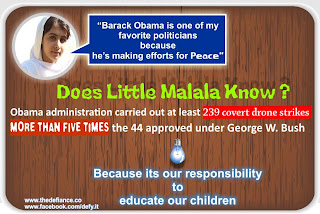The Meaning of al-Zalzalah
{ إِذَا زُلْزِلَتِ ٱلأَرْضُ زِلْزَالَهَا }
And from his narration on the authority of Ibn ‘Abbas that he said about the interpretation of Allah’s saying (When Earth is shaken with her (final) earthquake): ‘(When Earth is shaken with her (final) earthquake) He says: the earth is shaken and quaking and all that which is on it of trees, mountains and building is crumbling down
{ وَأَخْرَجَتِ ٱلأَرْضُ أَثْقَالَهَا }
(And Earth yieldeth up her burdens) and the Earth brings out her dead and treasures,
{ وَقَالَ ٱلإِنسَانُ مَا لَهَا }
(And man) i.e. the disbeliever (saith: What aileth her?) He says this in astonishment from the horror he sees
{ يَوْمَئِذٍ تُحَدِّثُ أَخْبَارَهَا }
(That day) when the earth is shaken (she will relate her chronicles) the earth will inform about the good and evil that were done on its surface,
{ بِأَنَّ رَبَّكَ أَوْحَىٰ لَهَا }
(Because thy Lord inspires her) because your Lord gives her leave to talk.
{ يَوْمَئِذٍ يَصْدُرُ ٱلنَّاسُ أَشْتَاتاً لِّيُرَوْاْ أَعْمَالَهُمْ }
(That day) when the earth speaks (mankind will issue forth in scattered groups) a group will go to Paradise, these are the believers, and a group will go to hell, and these are the disbelievers (to be shown their deeds) what they have done of good or evil when they were in the life of the world.
{ فَمَن يَعْمَلْ مِثْقَالَ ذَرَّةٍ خَيْراً يَرَهُ }
Allah then revealed the following verse about a group of people who thought that they are not rewarded for any small goodness they do nor punished for any small evil they commit, and so Allah urged them to do acts of goodness even if they are small and warned them against acts of evil even if they are small acts: (And whoso doeth good an atom’s weight) the weight of the smallest ant (will see it then) in his register and then will be happy with it; it is also said: the believer sees his works in the Hereafter while the disbeliever sees his works in the life of the world,
{ وَمَن يَعْـمَلْ مِثْقَالَ ذَرَّةٍ شَرّاً يَرَهُ }
(And whoso doeth ill an atom’s weight) the weight of a small atom (will see it then) is written in his register and will displease him; and it is also said: the believer sees it in the life of the world while the disbeliever sees it in the Hereafter’.
{ إِذَا زُلْزِلَتِ ٱلأَرْضُ زِلْزَالَهَا }
And from his narration on the authority of Ibn ‘Abbas that he said about the interpretation of Allah’s saying (When Earth is shaken with her (final) earthquake): ‘(When Earth is shaken with her (final) earthquake) He says: the earth is shaken and quaking and all that which is on it of trees, mountains and building is crumbling down
{ وَأَخْرَجَتِ ٱلأَرْضُ أَثْقَالَهَا }
(And Earth yieldeth up her burdens) and the Earth brings out her dead and treasures,
{ وَقَالَ ٱلإِنسَانُ مَا لَهَا }
(And man) i.e. the disbeliever (saith: What aileth her?) He says this in astonishment from the horror he sees
{ يَوْمَئِذٍ تُحَدِّثُ أَخْبَارَهَا }
(That day) when the earth is shaken (she will relate her chronicles) the earth will inform about the good and evil that were done on its surface,
{ بِأَنَّ رَبَّكَ أَوْحَىٰ لَهَا }
(Because thy Lord inspires her) because your Lord gives her leave to talk.
{ يَوْمَئِذٍ يَصْدُرُ ٱلنَّاسُ أَشْتَاتاً لِّيُرَوْاْ أَعْمَالَهُمْ }
(That day) when the earth speaks (mankind will issue forth in scattered groups) a group will go to Paradise, these are the believers, and a group will go to hell, and these are the disbelievers (to be shown their deeds) what they have done of good or evil when they were in the life of the world.
{ فَمَن يَعْمَلْ مِثْقَالَ ذَرَّةٍ خَيْراً يَرَهُ }
Allah then revealed the following verse about a group of people who thought that they are not rewarded for any small goodness they do nor punished for any small evil they commit, and so Allah urged them to do acts of goodness even if they are small and warned them against acts of evil even if they are small acts: (And whoso doeth good an atom’s weight) the weight of the smallest ant (will see it then) in his register and then will be happy with it; it is also said: the believer sees his works in the Hereafter while the disbeliever sees his works in the life of the world,
{ وَمَن يَعْـمَلْ مِثْقَالَ ذَرَّةٍ شَرّاً يَرَهُ }
(And whoso doeth ill an atom’s weight) the weight of a small atom (will see it then) is written in his register and will displease him; and it is also said: the believer sees it in the life of the world while the disbeliever sees it in the Hereafter’.





.jpg)

.jpg)






















.jpg)



















.jpg)






































































.jpg)














